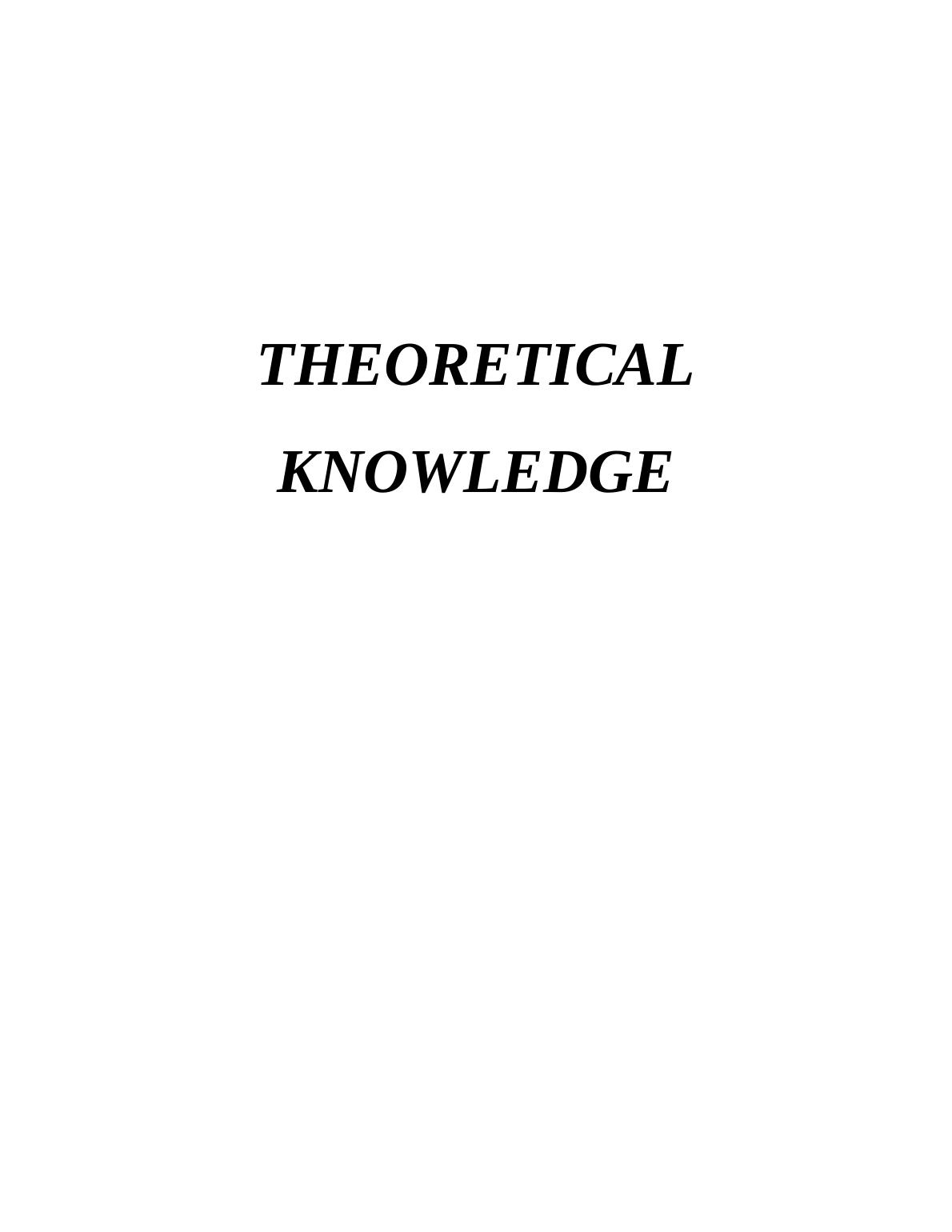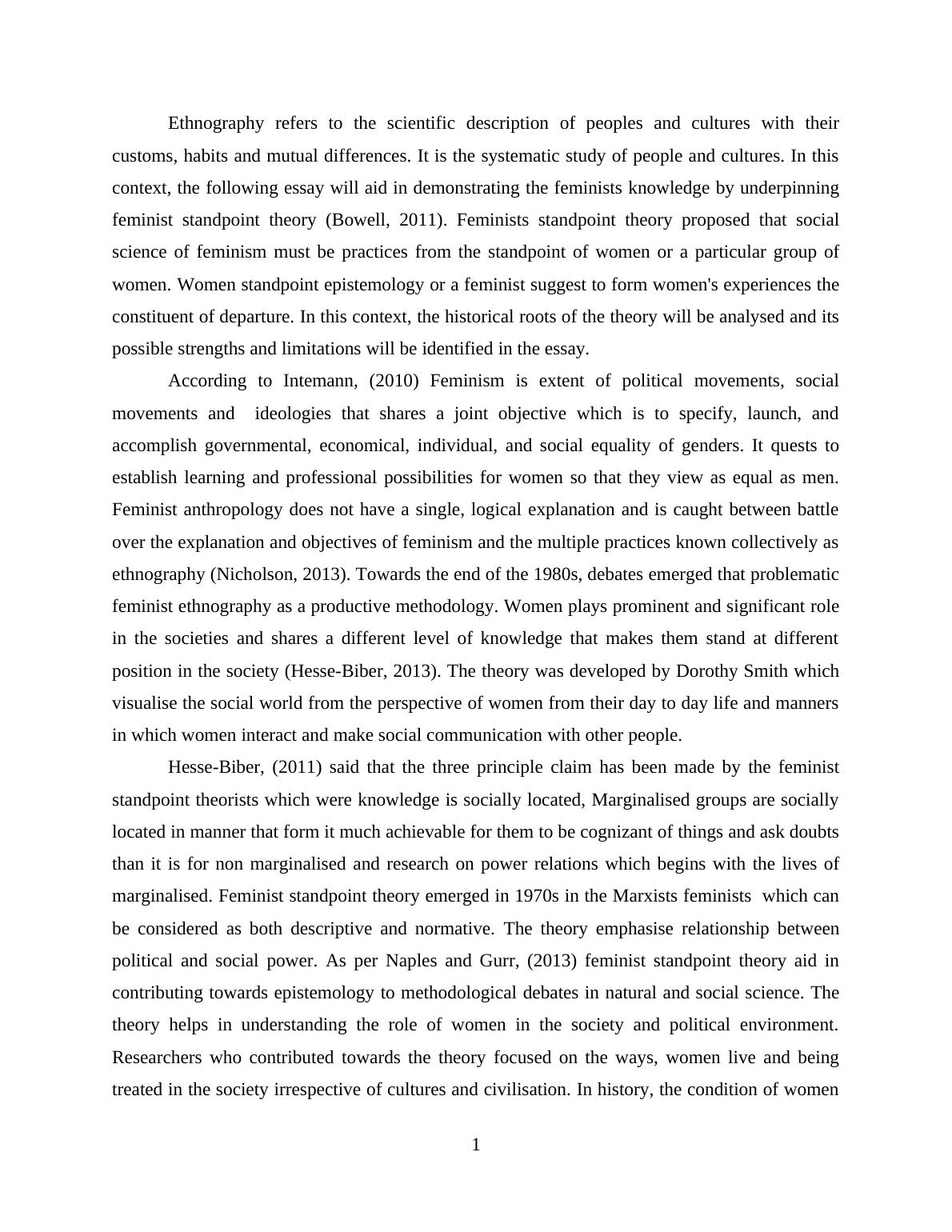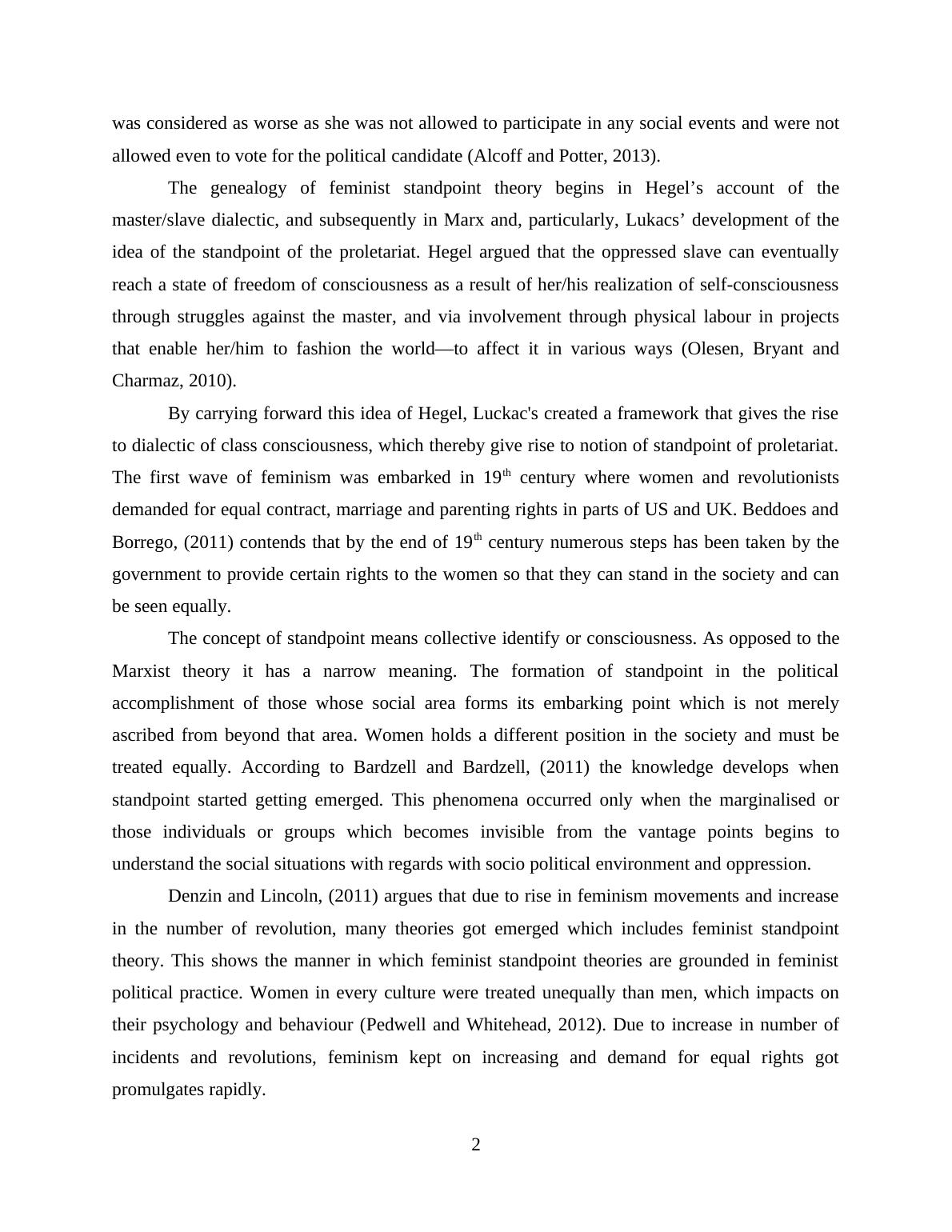The Role of Theory in Ethnographic Research
Added on 2020-06-04
9 Pages2976 Words204 Views
THEORETICALKNOWLEDGE

Ethnography refers to the scientific description of peoples and cultures with theircustoms, habits and mutual differences. It is the systematic study of people and cultures. In thiscontext, the following essay will aid in demonstrating the feminists knowledge by underpinningfeminist standpoint theory (Bowell, 2011). Feminists standpoint theory proposed that socialscience of feminism must be practices from the standpoint of women or a particular group ofwomen. Women standpoint epistemology or a feminist suggest to form women's experiences theconstituent of departure. In this context, the historical roots of the theory will be analysed and itspossible strengths and limitations will be identified in the essay. According to Intemann, (2010) Feminism is extent of political movements, socialmovements and ideologies that shares a joint objective which is to specify, launch, andaccomplish governmental, economical, individual, and social equality of genders. It quests toestablish learning and professional possibilities for women so that they view as equal as men.Feminist anthropology does not have a single, logical explanation and is caught between battleover the explanation and objectives of feminism and the multiple practices known collectively asethnography (Nicholson, 2013). Towards the end of the 1980s, debates emerged that problematicfeminist ethnography as a productive methodology. Women plays prominent and significant rolein the societies and shares a different level of knowledge that makes them stand at differentposition in the society (Hesse-Biber, 2013). The theory was developed by Dorothy Smith whichvisualise the social world from the perspective of women from their day to day life and mannersin which women interact and make social communication with other people. Hesse-Biber, (2011) said that the three principle claim has been made by the feministstandpoint theorists which were knowledge is socially located, Marginalised groups are sociallylocated in manner that form it much achievable for them to be cognizant of things and ask doubtsthan it is for non marginalised and research on power relations which begins with the lives ofmarginalised. Feminist standpoint theory emerged in 1970s in the Marxists feminists which canbe considered as both descriptive and normative. The theory emphasise relationship betweenpolitical and social power. As per Naples and Gurr, (2013) feminist standpoint theory aid incontributing towards epistemology to methodological debates in natural and social science. Thetheory helps in understanding the role of women in the society and political environment.Researchers who contributed towards the theory focused on the ways, women live and beingtreated in the society irrespective of cultures and civilisation. In history, the condition of women1

was considered as worse as she was not allowed to participate in any social events and were notallowed even to vote for the political candidate (Alcoff and Potter, 2013). The genealogy of feminist standpoint theory begins in Hegel’s account of themaster/slave dialectic, and subsequently in Marx and, particularly, Lukacs’ development of theidea of the standpoint of the proletariat. Hegel argued that the oppressed slave can eventuallyreach a state of freedom of consciousness as a result of her/his realization of self-consciousnessthrough struggles against the master, and via involvement through physical labour in projectsthat enable her/him to fashion the world—to affect it in various ways (Olesen, Bryant andCharmaz, 2010). By carrying forward this idea of Hegel, Luckac's created a framework that gives the riseto dialectic of class consciousness, which thereby give rise to notion of standpoint of proletariat.The first wave of feminism was embarked in 19th century where women and revolutionistsdemanded for equal contract, marriage and parenting rights in parts of US and UK. Beddoes andBorrego, (2011) contends that by the end of 19th century numerous steps has been taken by thegovernment to provide certain rights to the women so that they can stand in the society and canbe seen equally. The concept of standpoint means collective identify or consciousness. As opposed to theMarxist theory it has a narrow meaning. The formation of standpoint in the politicalaccomplishment of those whose social area forms its embarking point which is not merelyascribed from beyond that area. Women holds a different position in the society and must betreated equally. According to Bardzell and Bardzell, (2011) the knowledge develops whenstandpoint started getting emerged. This phenomena occurred only when the marginalised orthose individuals or groups which becomes invisible from the vantage points begins tounderstand the social situations with regards with socio political environment and oppression. Denzin and Lincoln, (2011) argues that due to rise in feminism movements and increasein the number of revolution, many theories got emerged which includes feminist standpointtheory. This shows the manner in which feminist standpoint theories are grounded in feministpolitical practice. Women in every culture were treated unequally than men, which impacts ontheir psychology and behaviour (Pedwell and Whitehead, 2012). Due to increase in number ofincidents and revolutions, feminism kept on increasing and demand for equal rights gotpromulgates rapidly. 2

End of preview
Want to access all the pages? Upload your documents or become a member.
Related Documents
Feminist Standpoint Theories - PDFlg...
|7
|2097
|219
Social Feminism Feministic Theory 2022lg...
|11
|464
|20
Feminist Standpoint Theory: Strengths and Weaknesseslg...
|4
|647
|105
